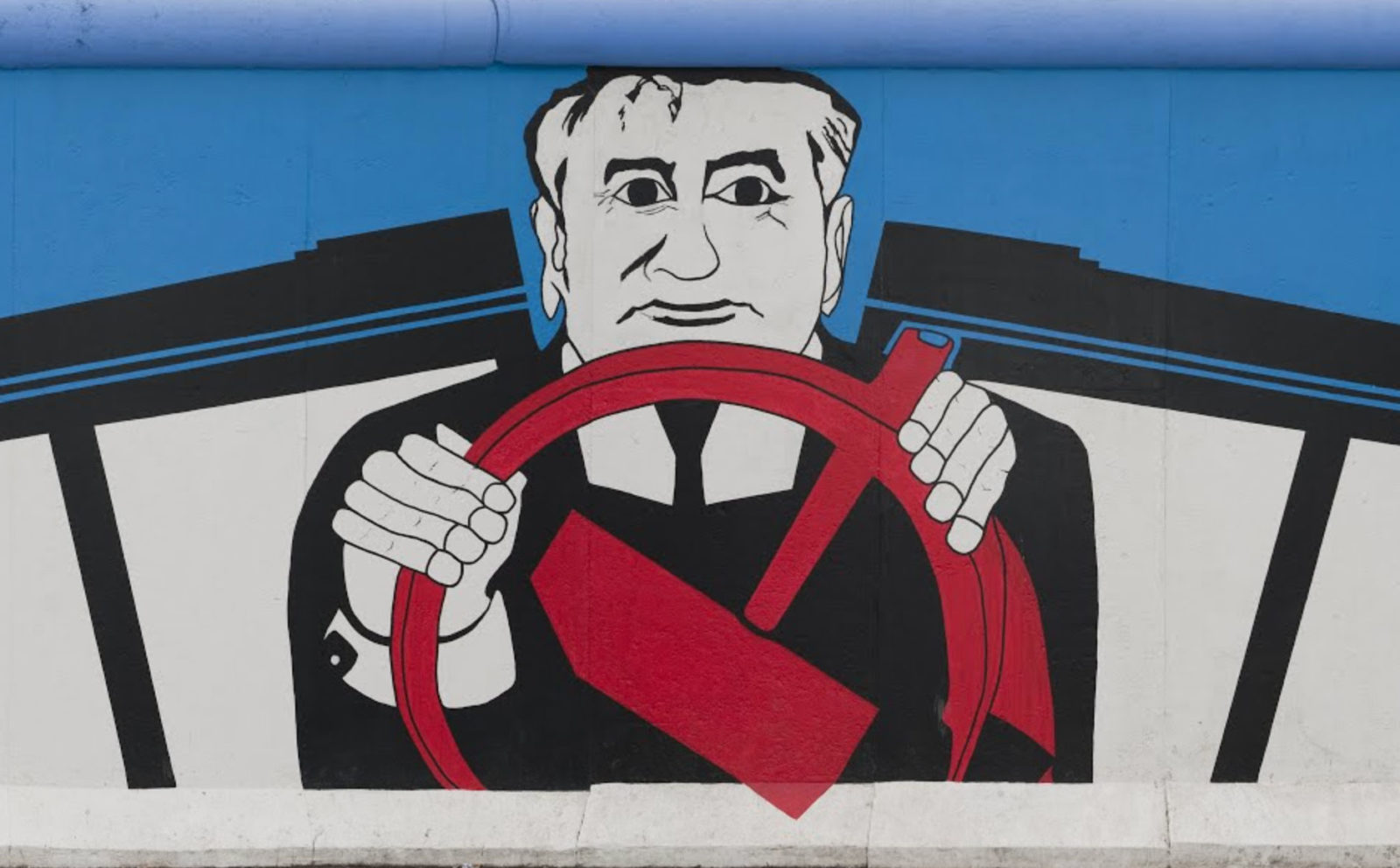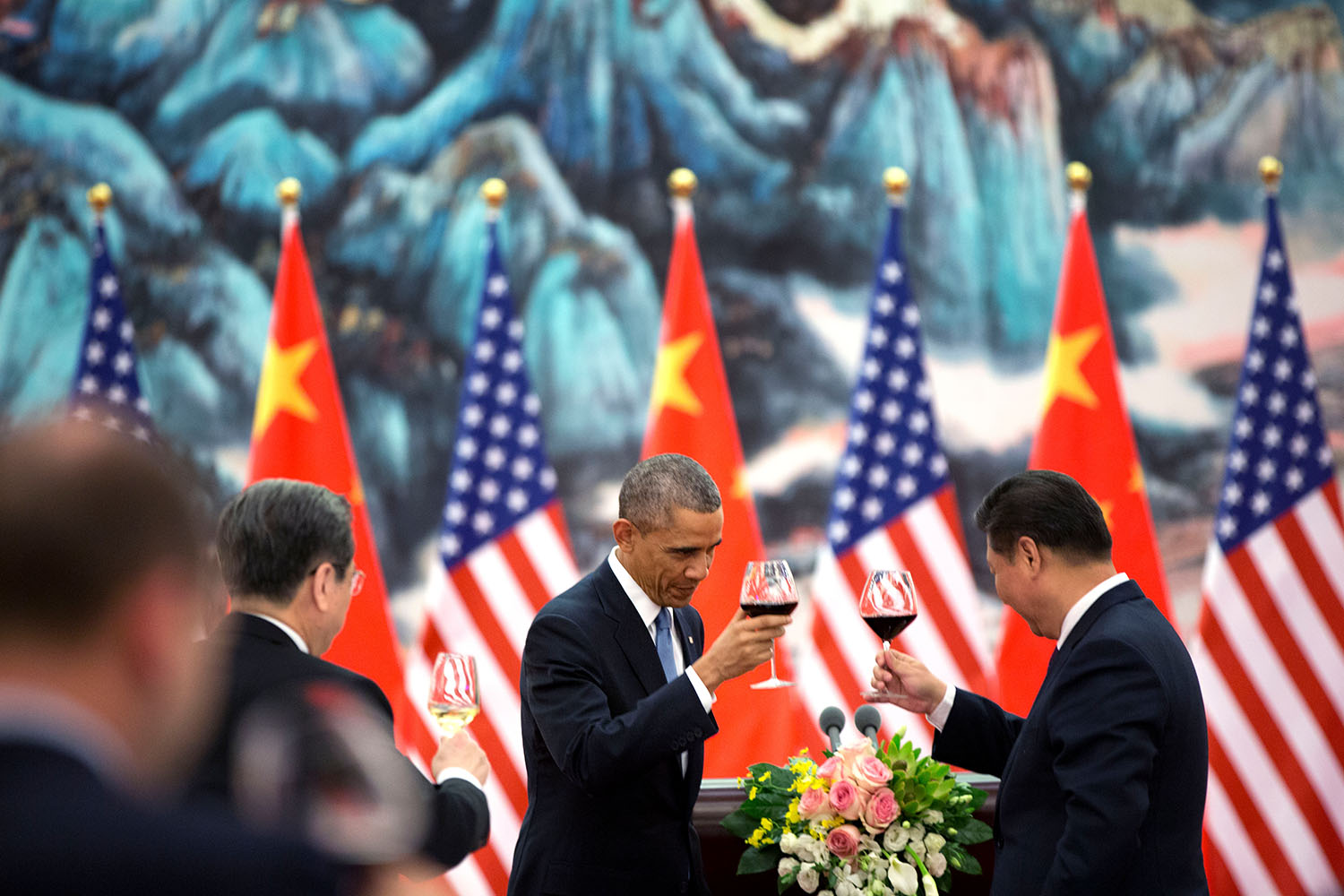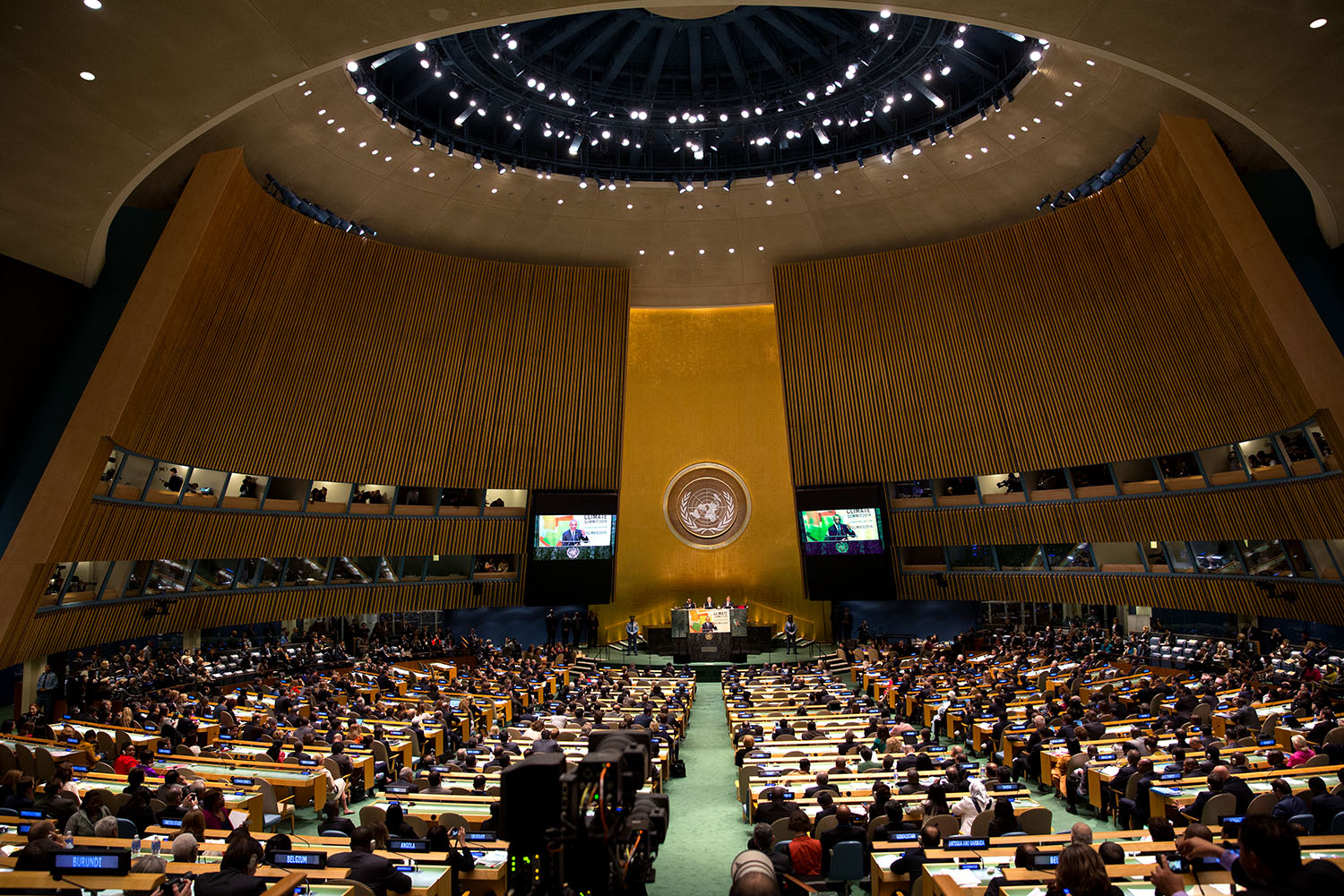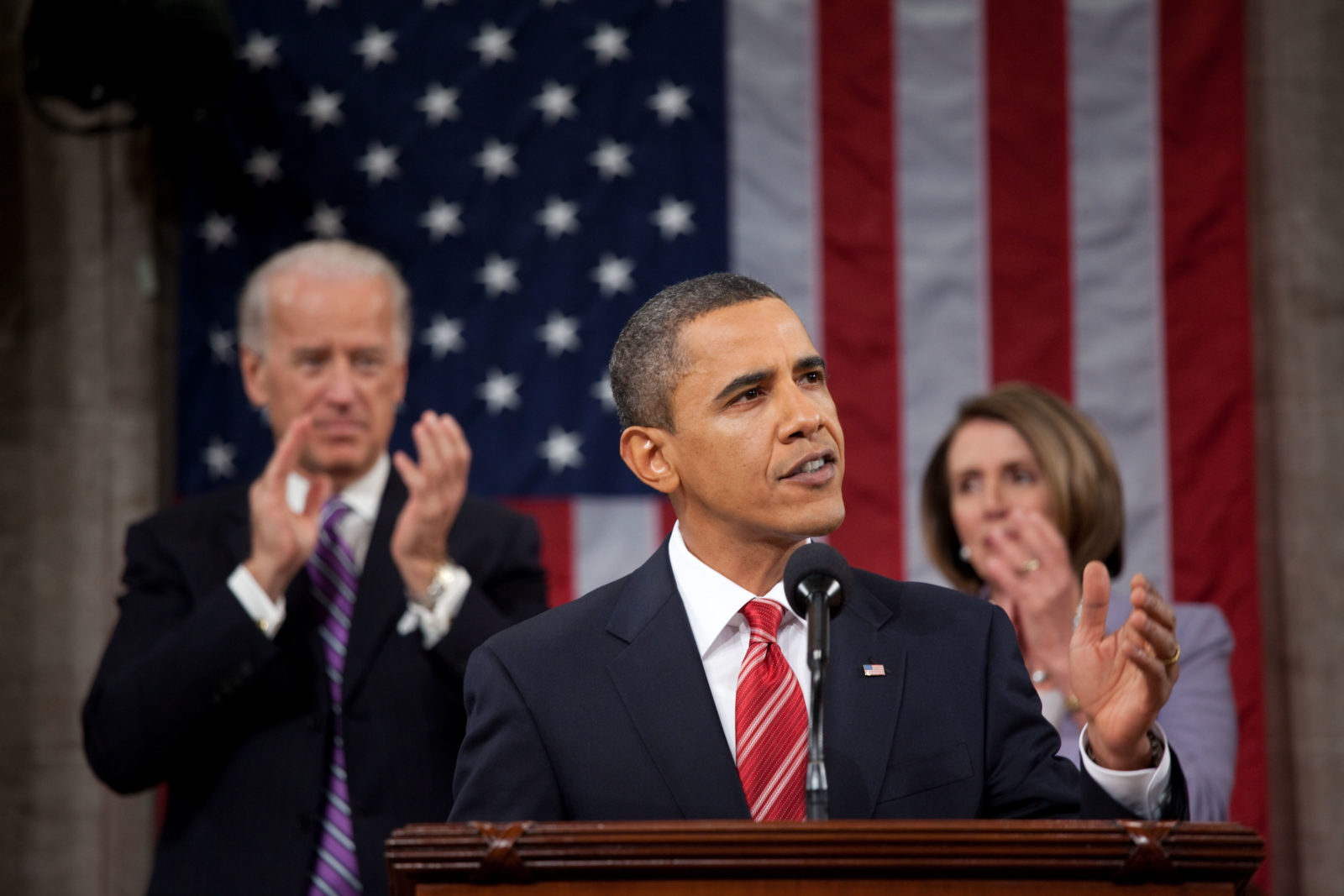


Trump’s Push for Deregulation
On day one President Trump surprised business leaders gathered at the White House, declaring U.S. regulations “out of control” and “in need of 75% or more reduction.” A week later, he boldly signed an executive order requiring repeal of two old rules for every new one that government agencies implement. The fact is that cutting regulations is as critical as Read More ›
Obama’s Palestine Punchout
It is possible that President Obama actually believes that his 11th hour Mideast madness at the UN — stealthily coordinated with the Palestinians, according to Israeli PM Bibi Netanyahu; initiated by the U.S., according to the Egyptians — will foster peace in the Arab-Israeli conflict. This is so delusional that if his belief is in fact honest it is arguably even Read More ›

Why Millennials are Warming to Socialism
Vermont senator and self-proclaimed “democratic socialist” Bernie Sanders vanquished Hillary Clinton in West Virginia last week with more than 51 percent of the vote, to Mrs. Clinton’s 36 percent. The average Appalachian coal miner is not a socialist. Mr. Sanders won because Mrs. Clinton foolishly pledged to destroy the coal industry. Hence, according to a CBS News poll, 44 percent Read More ›
Turning Alinsky On His Head With Rules For Republicans
Today, with the U.S. facing its greatest threat — that of irreversible decline — a new kind of presidential leadership is desperately needed. For the Republicans, it is not only vital to elevate and deliver a candidate with the character, courage and capability to lead in this time of crisis. It is also essential that the candidate has the ability Read More ›
Powell: Buyer beware on the Trans-Pacific Partnership
Most people rightly assume that reducing trade barriers is good in and of itself. But it’s a mistake to think that the Trans-Pacific Partnership, involving 11 countries plus the U.S., is primarily a free trade pact. It’s also a misstep to grant the Obama administration fast-track authority and the attendant secrecy on all details of this trade pact. The experience Read More ›

A Tale of Two Cynics: Nixon and Obama
President Richard Nixon’s historic gamble with Mainland China turned out well. When he was elected in 1968, it was an out-of-control society and regime, subverting its neighbors and condemning the United States. Today we have a similar regional foe — Iran. Will President Obama be in Tehran a year from now, celebrating the start of a similar moderation by the world’s chief sponsor of terrorism? Or will he have rewritten yet another campaign pledge ushering in an Islamist nuclear power with apocalyptic ambitions?
The Nixon/Obama parallels are instructive. Richard Nixon was, and Barack Obama is, a loner with many admirers and few friends. Both preferred to speak to the electorate in heavily scripted settings. Both were lawyers. Both were also charged — nearly every week — with violating the Constitution. Both tolerated substantial cuts in U.S. military spending while inflating social-welfare and environmental obligations.
And both did whatever they had to do to appeal to a consistent enemy of the United States and its key allies.
One-Man Leadership Assaults the Conventional Wisdom
In October 1967, Communist (or Mainland) China was offered a deal by private-citizen Richard Nixon. Writing inForeign Affairs, he called for “a policy of firm restraint [and] creative counter-pressure designed to persuade Peking that its interests can be served only by accepting the basic rules of international civility.” Longer run, that meant “pulling China back into the world community — but as a great and progressing nation, not as the epicenter of world revolution.”
In 2008, presidential candidate Obama pledged to meet with Iran’s theocrats and cited no preconditions. Although not “carrot and stick” like Nixon’s, it was also a big gamble.
In 1969 — President Nixon’s first year — the Soviet Union proposed that the U.S. and U.S.S.R conspire to eliminate Mainland China’s nuclear forces. Nixon said back to the Kremlin: Don’t even think about it. In 2009 — President Obama’s first year — a fraudulent presidential election kept Iran’s extreme Islamists in power. Thousands took to the streets. Obama gave them zero support.
Forty years apart, Nixon and later Obama sent early and strong signals: “Count on the new guy to head off anything that will rock your boat….”
By 1972, Nixon was breaking bread with mass-murderer Mao Tse-Tung. The joint communiqué said “all Chinese on either side of the Taiwan Strait maintain there is but one China and Taiwan is a part of China.” Rather than seek repeal of the 1955 Sino-American Mutual Defense Treaty with Taiwan — then as now the “Republic of China” — Nixon pretended it did not exist. Traditional Republicans faced shell-shock.
Read More ›
The Great Obama Retreat
Just before he was elected president in 2008, Barack Obama declared, “We are just five days away from fundamentally transforming the United States of America.” He may not succeed in his aim to transform the domestic landscape. Instead his legacy may be a different transformation entirely: a tectonic shift in America’s position in the world, diminishing America’s status abroad to Read More ›

The State of the Union Is a Mess: Honesty Would Be a Good Start
With a new year often comes anticipation and optimism. And this year the State of the Union address will be in front of a new Congress — with a Republican majority in both the House and Senate.
President Obama’s State of the Union speech will likely have its smallest audience to date. That is the price any leader pays for being dissembling on a range of important issues — from Benghazi, to IRS targeting of conservative American non-profits, to keeping your doctor, trading the Gitmo 5 for deserter Bowe Bergdahl — and showing disrespect for the voting public. After all, when after the November 4 election results came in, and Obama said he heard the message of “two-thirds of the people who chose not to vote,” that was final confirmation of rigidity and denial that turns people off.
What America’s domestic and foreign policy failure both now have in common at the outset of 2015 is an “Alice in Wonderland” syndrome — where reality is turned upside down, where nonsense is passed off as truth, where disarray is a plan and stonewalling is an acceptable response.
Unfortunately there are no silver bullets to our current predicament in either domestic or foreign policy. What American people should demand now is not immediate results but more honesty in public discourse about the causes of our national decline and the need for new and different approaches that embrace realistic solutions grounded in principles and institutions that work and deliver measurable results.
On domestic policy, the first order is for Washington to acknowledge the absurdity of dealing with over-indebtedness by piling up more debt or fixing problems with more regulations. Any new legislation or executive order — like a free community college entitlement — that adds to the federal debt should simply be dead on arrival. Clearly a new monetary policy approach is needed by the Federal Reserve, whose six-year experiment with zero interest rates and money printing has left the poor and middle class entirely behind, while helping big government, Wall Street and corporate officers with big company stock awards get even richer. There is something wrong with Washington policy that has left the vast majority of Americans worse off than they were ten years ago.
Read More ›Obama’s Planned Amnesty Is Latest In A String Of Lawless Actions
Fresh off their midterm tidal wave, the Republicans now face the same dilemma as in the story line of “The Untouchables” — the 1987 classic about dealing with Al Capone in Chicago. As Sean Connery asked Kevin Costner, “What are you prepared to do?” Republican leadership must now decide what they are prepared to do to stop a president hell-bent Read More ›